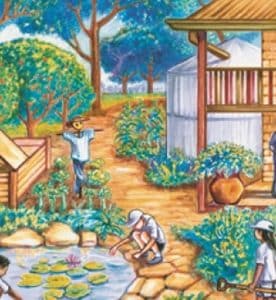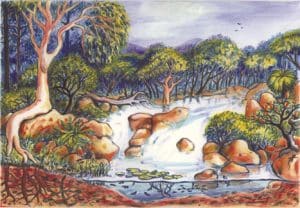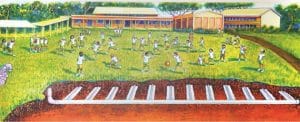
Sustainable Schools Program
SCRAP’s Sustainable Schools Program began in 2000 when a consortium of partners came together to offer the EcoSnapshot Day in which schools undertook 5 audits and surveys covering – Solid Waste, Energy, Water, Biodiversity and Materials Use and Management in one day resulting in a comprehensive benchmarking of their environmental performance and great hands-on education


